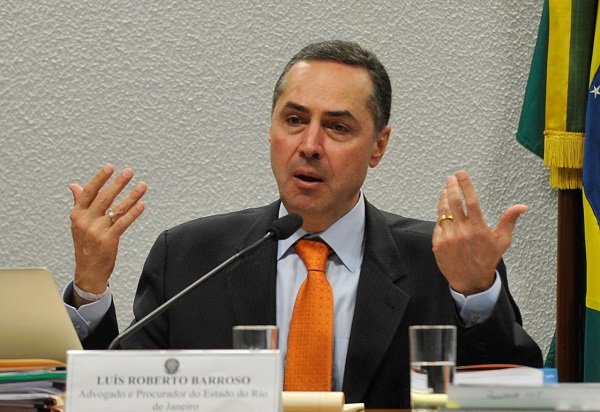On Wednesday (12/07), Supreme Federal Court (STF) Minister Luís Roberto Barroso revived the conflict the Judiciary has with allies of former President Jair Bolsonaro (PL) after saying “we defeated Bolsonarism”. The act was seen as a political statement and he ended up being criticized by important political leaders and his peers, and even threatened with an impeachment process by supporters of Bolsonaro. To Control the crisis, the minister had to apologize and explain himself. The event gained more relevance after Friday (14/07), when STF Minister Alexandre de Moraes and his family were attacked by Brazilian tourists in Italy. The events expose the still strong political division in the country, which sometimes blasts in episodes of violence.
This Content Is Only For Subscribers
To unlock this content, subscribe to INTERLIRA Reports.
The Statement
The statement was made by the magistrate at a National Union of Students (UNE) event. The environment was another problem for the minister, since UNE is an organization traditionally dominated by the left.
It led to wear and tear on the Supreme Court, which mobilized itself to explain the statements with the release of two official notes in less than 24 hours, on behalf of the court and on behalf of the minister, to refute the accusations of political and partisan activity.
Criticisms
Barroso was criticized by Senate President Rodrigo Pacheco (PSD), who is a critic of Bolsonarism and maintains good relations with the STF. Pacheco suggested that the minister should apologize for his presence at an event of “political nature” with an “unfortunate, inadequate, untimely” speech. The Senate is the institution that can carry out the impeachment of an STF minister.
Barroso’s statement also received criticism from members of the Judiciary, members of higher courts and other peers for giving rise to complaints that the judiciary acts partially in relation to Bolsonaro.
Apologies
After Pacheco’s speech, the minister released a note in his name in which he said that he did not want to offend Bolsonaro voters and that he was referring to “coup-mongering extremism”.
Before releasing a new note retracting the previous night’s speech, Barroso spoke with Pacheco on the phone. In the call, he said that he had committed a faulty act, that he wanted to refer to “extremism” and not “bolsonarismo“. The president of the Senate was to take the explanations to the leaders of the House to improve the climate with the parliamentarians, who threatened to ask for the impeachment of the minister.
Crisis with the Judiciary
Former President Jair Bolsonaro had several disputes with the Judiciary power during his mandate, particularly with the STF. Tensions began to escalate during the Pandemic, when the Supreme court decided that the states and cities could take actions to contain the virus by themselves and did not have to follow the decisions established by the Federal Government. At that time, central authorities did not want to stop economic activities, while many mayors and governors wanted to implement social isolation to reduce contamination.
Many more conflicts between the two republican powers appeared and the ministers became the target of criticisms, accusations, and some threats. Another important moment was the campaign made by Bolsonaro for the 2022 elections to have printed votes. The measure would be a way to make the electoral process more reliable. Even though no evidence were revealed, he stated that the electoral system had already been rigged and that the electronic voting machines were prone to fraud. The STF and the Superior Electoral Court (TSE) took decisions against that, and this fueled the crisis even more.
Many political followers of the former President blame the STF ministers for Bolsonaro’s defeat in the elections, accuse them of being corrupt and taking decision to favor his adversary, President Lula. This led to the protests at the end of 2022 and the 8 January invasion, during which the STF was severely damaged.
The decision taken by the TSE, whose President is STF Minister Alexandre de Moraes, on 30 June to make Jair Bolsonaro ineligible also increased tensions.
According to political analysts, for supporters of Bolsonaro, Barroso’s statement would show that their criticisms against the STF are truth, that the court is corrupt, and partial.
Attack Against Minister Moraes
In addition to the attacks against the STF, the tensions led to many episodes of threats to the ministers. On Friday (14/07), this also provoked an attack against STF Minister Alexandre de Moraes. He was verbally attacked at an airport in Rome, Italy, when he returned from a lecture he gave at the University of Siena. His son would have been punched by a group of three Brazilians, which would have also called him: “bandit, communist and corrupt”.




